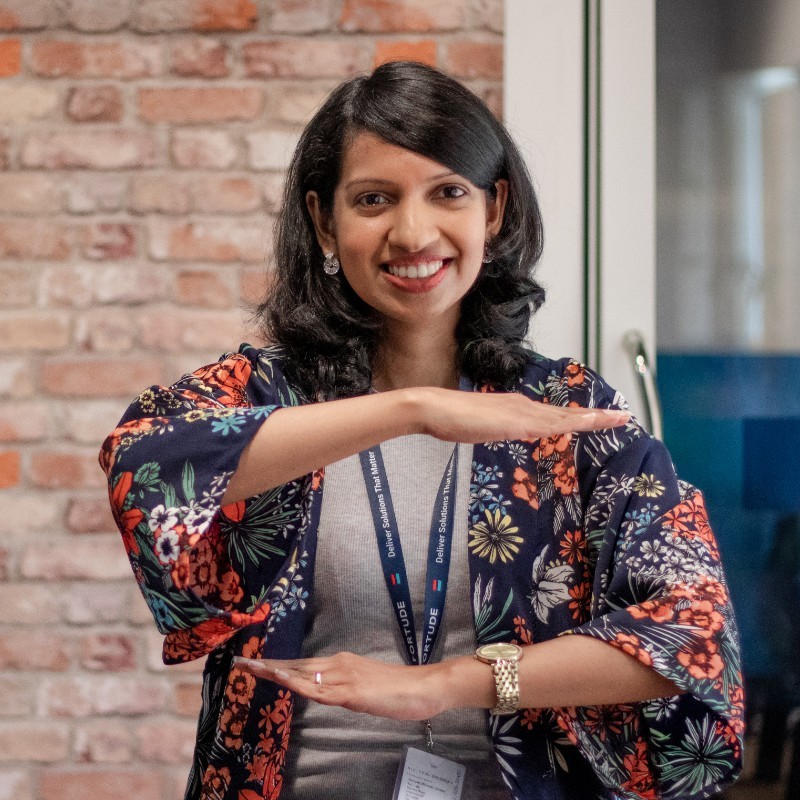
Article by Anishka Ranabahu, Associate Vice President – Global Marketing and Communications at Fortude
However, this year’s theme encourages businesses to consider what further needs to be done, and the inherent biases that women have to confront on a daily basis.
So, what lessons can be shared about empowering women in business? WeAreTheCity spoke to esteemed industry experts about their stories of resilience which has led them to break the bias in their workplace.
For many women, the fight for gender equality means constantly having to prove themselves in areas that often go beyond gender, and encompass other factors such as race, age, education, or nationality. Aarthy Arunasalam, Gender, Employment and Private Sector Specialist at International Finance Corporation (IFC), explains how women always have to rise above situations in which they’re discriminated against.
“When I receive biased comments about my gender or race I often initially don’t know how to respond. In one recent situation, I chose to champion myself and my work by reminding the person of my contributions,” describes Aarthy. “These situations are always challenging but it’s important to not take it personally; people are not bad, it’s just their innate biases that make them act in a particular way.”
Carmen Niethammer, Senior Gender Specialist and Forbes Contributing Writer, agrees, noting that not taking it personally allows you to move forward: “Throughout my career, I am often questioned as to my motives, my skills, my authority, and my expertise. The way to come around this is to be open-minded, not take it personally, and establish a trust to tackle these biases in the future.”
One of the many biases women come up against is the notion that females are more emotional, a common assumption made in the workplace. Jackie Cañiza, Founder, Managing Partner, Life & Leadership Coach at Haraya Coaching, acknowledges the long term impact this mindset has.
“Joining the corporate world I had to quickly learn that my emotions were not welcome. I had to check them at the door because being strong and successful was defined by having no emotions. Years later when I left to start my coaching business, I had to unlearn so many of my own beliefs.”

Addressing a person’s conscious or unconscious bias in the workplace can be daunting, but these conversations are vital to progress forward. Jackie Cañiza notes how the first step is making sure the conversation is happening in a safe space.
“In most cases biases are unconscious, meaning the person who holds the bias might not be aware that it is actually happening. So many factors influence the lens through which we see the world, so we process situations alongside what we already know making it very hard to break a bias.
“We need to shift our thinking in a way where people don’t feel wrong or judged so we can open up these conversations. I would first start by creating a safe space so the person doesn’t feel judged,” she explains.
Roland Smith, PhD, Group Director, Chief Learning and Transformation Officer at Brandix, takes this one step further by describing how companies can help to create positive environments where long-term change can happen.
“Organisations need to create a culture and conditions where people flourish, so that the business can flourish too. Many organizations have been built on a traditional patriarchal culture, but by embracing diversity businesses will be led to success, and employees as individuals will excel too.”
Carmen Niethammer noted the importance of a business and its employees having a good relationship, adding, “Employers cannot do it by themselves, employees must contribute. Don’t just be an ally, it’s about what we as individuals can bring to the table.”
Workplaces are steadily starting to see more gender equality, but certain industries continue to be seen as more ‘male’ or ‘female’. Aarthy Arunasalam notes that there are multiple biases she has come across, particularly in gender stereotyping, however “this narrative is changing, as companies work towards putting better environments and structures in place.
“Women are having more opportunities to do more non-tradtiional jobs. It’s really important to have an enabling environemnt to make this work; policies are key to preventing sexual harassment, stereotyping and so on,” she adds.
The road to gender equality has already been a long one, and we still have far to go. Estimates say it will take us three decades to reach parity in the boardroom, but if we work together we can get there sooner.
Anishka Ranabahu, Global Head of Marketing and Communications at Fortude, closes by saying, “to quote Shirley Chisholm: ‘If they don’t give you a seat at the table, bring a folding chair’ – but I like to add something onto that. When you get there, make some space for other women to be part of the table too. When you win, we all win.”
Anishka began her career in mass and targeted communications working with different industries and with some of corporate Sri Lanka’s biggest companies. She oversees media relations, manages multiple brands and their diverse requirements, and contributes to business development. Anishka has extensive experience working across varied industries devising effective communications strategies, directing creative work, managaging stakeholder engagement and awareness and driving growth across multiple digital channels.

